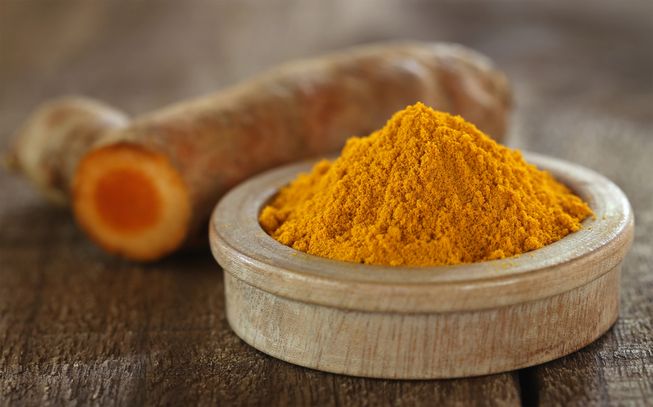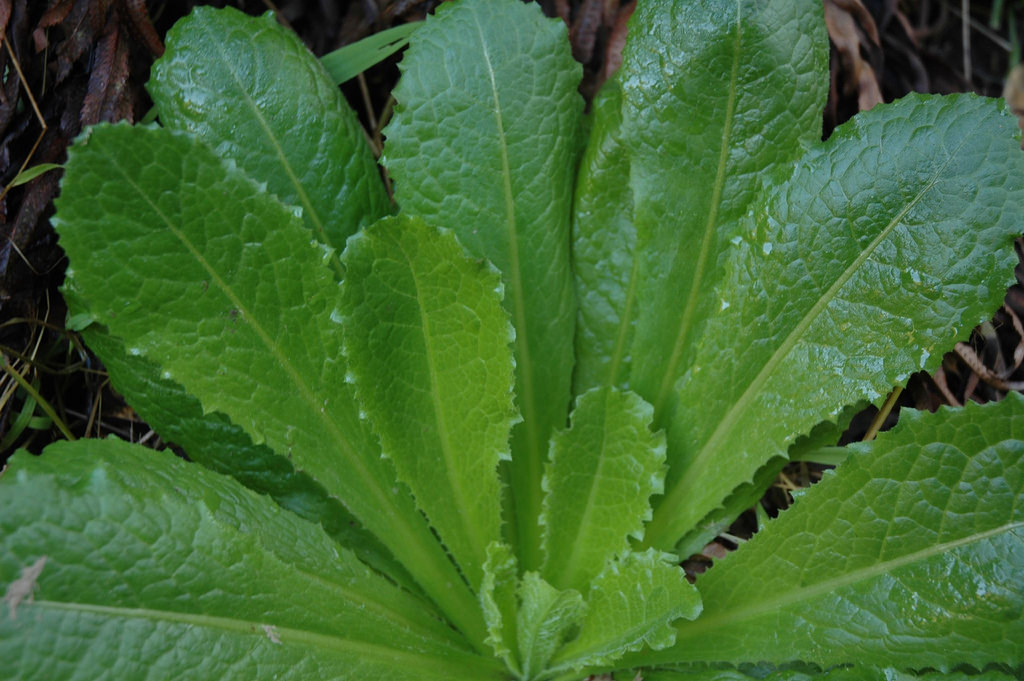
Advertisement
Turmeric (Curcuma longa), commonly known as the “golden spice,” is a culinary ingredient and herbal medicine that has been used for thousands of years. A popular spice used to make curry, the root of this medicinal plant from the ginger family contains powerful compounds with highly beneficial properties.
According to studies, curcumin, the active component of turmeric, has plenty of health-promoting properties, the most notable of which are its anti-inflammatory and anti-cancer activities. In a recent study, Brazilian researchers shed light on one of the ways curcumin in turmeric can help prevent or treat stomach cancer.
The history of curcumin
Curcumin was first discovered in 1815 by two researchers, Vogel and Pelletier, who reported isolating a “yellow coloring-matter” from the rhizomes of turmeric. They later learned that this substance is a mixture of resin and turmeric oil. However, it was not until 1910 that researchers were able to elucidate curcumin’s chemical structure and synthesize the compound.
In 1949, two researchers from the University of Erlangen in Germany discovered one of the biological properties of curcumin. They reported that the compound has antibacterial properties and was effective against pathogenic bacteria like Staphylococcus aureus, Salmonella paratyphi, Trichophyton gypseum and Mycobacterium tuberculosis. But despite their findings, curcumin did not attract further scientific interest until the 1970s, when three different teams discovered that the compound also had cholesterol-lowering, anti-diabetic, anti-inflammatory and antioxidant properties.
A decade later, reports of curcumin’s anti-cancer effects began to emerge, and these findings were validated in both cell culture studies and animal experiments. Since then, interest in curcumin has increased exponentially, and scientists now know that curcumin can influence multiple signaling pathways and is safe and effective as a therapeutic agent for a variety of human diseases.
One issue, however, reduces curcumin’s therapeutic efficacy. According to studies, the compound has poor bioavailability, meaning it isn’t readily absorbed inside the body. Reports also revealed that curcumin is rapidly metabolized and eliminated from the body, preventing it from exerting its beneficial effects. Researchers later discovered that piperine, a compound in black pepper, can improve the absorption of curcumin by 2,000 percent. Other promising approaches for increasing the compound’s bioavailability include using nanoparticles, micelles and liposomes as delivery systems.
Curcumin as an anti-cancer agent
For their study, Brazilian researchers reviewed existing literature on bioactive plant compounds that have shown potential in treating or preventing stomach cancer. They reported that nutrients like vitamin D, quercetin, resveratrol and curcumin have the ability to lower the risk of stomach cancer because they can regulate the activity of histones.
Histones are proteins that provide structural support to chromosomes. In order to fit inside the cell nucleus, long strands of genetic material or DNA coil themselves around these proteins. When DNA is compacted in this way, they are not expressed and are “switched off.” Histones are tightly regulated by several proteins because the coiling and uncoiling of DNA strands around them determine how and when genes are expressed.
“If the histones are acetylated, for example, the chromatin will be less condensed, and a gene in a region of the DNA segment inside it will be available to be expressed. In contrast, if the histones aren’t acetylated, the chromatin will be more condensed, and the gene won’t be expressed,” explained Danielle Calcagno, the lead author of the study.
Acetylation is just one of the many modifications histones undergo to control gene expression. Recent studies, however, suggest that this type of modification — known as post-translational histone modification — not only alters gene expression but also influences the development of different types of cancer.
After exploring histone acetylation patterns in stomach cell samples taken from healthy individuals and patients with stomach cancer, researchers discovered that alterations in the expression patterns of histone-modifying enzymes, such as histone acetyltransferases (HATs) and histone deacetylases (HDACs), affect both the structure and integrity of the genome in many tumors.
But the good news is, compounds like curcumin can regulate the activity of HATs and HDACs. By inhibiting the acetylation of histones, Calcagno said that these active plant components can prevent the expression of genes involved in the development of stomach cancer. In the case of curcumin, several studies have shown that it suppresses the activity of HATs and HDACs to stop cancer cells from proliferating. This suppression also triggers cancer cells to commit cell suicide.
With these findings, the researchers are hopeful that they can find other plant compounds with similar anti-cancer activities.
“We now plan to clarify the anticancer and epigenetic effects of bioactive compounds derived from plants in the Amazon, such as açai [Euterpe oleracea] and nanche or hogberry [Byrsonima crassifolia], with a view to their future use in the prevention and treatment of stomach cancer,” said Calcagno.
Other health benefits of curcumin
Because of the abundance of studies demonstrating curcumin’s beneficial properties, curcumin and turmeric supplements are among the most popular health supplements sold today. Many people have also become familiar with the health benefits offered by this potent compound. Here are some science-backed benefits associated with curcumin and turmeric: (h/t to Healthline.com)
- Helps reduce inflammation — Chronic inflammation has been implicated in the development of serious diseases, such as heart disease, metabolic syndrome and cancer. Fortunately, curcumin is a natural anti-inflammatory agent that prevents the expression of pro-inflammatory genes by blocking NF-kB, a key regulator of inflammation, cell growth and cell death.
- Boosts antioxidant activity inside the body — A powerful natural antioxidant, curcumin can neutralize the damaging effects of free radicals and oxidative stress. Curcumin has also been found to enhance the activity of antioxidant enzymes, which are naturally present inside the body.
- Improves brain function and lowers the risk of brain diseases — Studies show that curcumin can increase the levels of brain-derived neurotrophic factor (BDNF), a protein necessary for the survival and growth of brain neurons. Brain diseases like Alzheimer’s disease and depression have been linked to abnormally low levels of BDNF, while an increase in BDNF is believed to improve memory and cognitive performance.
- Lowers the risk of heart disease — Curcumin supports heart health by improving the function of your blood vessels. This, in turn, helps regulate blood pressure and blood clotting, among other things. Curcumin also decreases inflammation, which is known to play a huge role in heart disease.
- Helps reduce the symptoms of arthritis — Because of its anti-inflammatory activities, curcumin in turmeric can reduce the painful joint inflammation suffered by patients with rheumatoid arthritis. Some studies also report that the effectiveness of curcumin as an anti-inflammatory agent is greater than that of frequently prescribed medications.
- Helps beat depression — A small study involving 60 participants — all of whom suffer from depression — showed that curcumin is just as effective as commonly used antidepressants in improving depression symptoms. Curcumin’s ability to increase BDNF levels is also believed to benefit people with depression.
Turmeric is a medicinal plant with a long history of use as a treatment for various ailments. Scientists attribute its beneficial effects, which include antioxidant, anti-inflammatory, cholesterol-lowering, anti-diabetic and anti-cancer activities, to its active component, curcumin. Curcumin not only regulates several important signaling pathways, but it also influences the expression of certain genes related to cancer. These activities make curcumin from turmeric one of the best natural cancer-fighting agents on the planet.
Sources:
Advertisements







